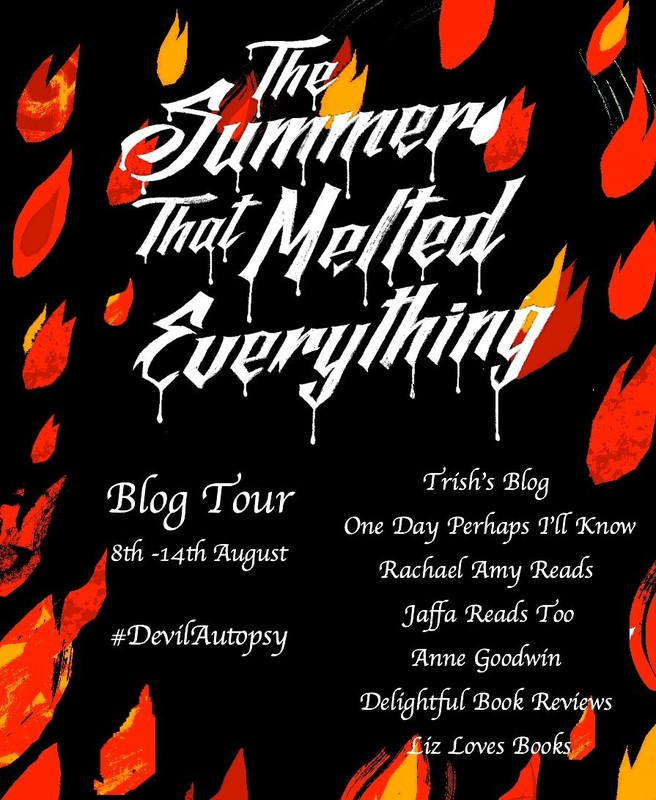Unfortunately their neighbours are not so sympathetic. Sal’s strange stories of the angel’s fall from grace, coupled with the coincidence of the rising heat and accidents that start to befall the town’s citizens, convince them that the devil has really arrived among them. While Sal is a sweet kid who always seems able to explain his actions, he doesn’t go to great lengths to defend himself (p207):
Being the devil made him a target, but it also meant he had a power he didn’t have when he was just a boy. People looked at him, listened to what he said. Being the devil made him important. Made him visible. And isn’t that the biggest tragedy of all? When a boy has to be the devil in order to be significant?
Of course, Sal is merely a scapegoat onto which others can project their own fear, shame and guilt. By association, so, to a degree, is the family that adopts him, with devastating consequences. At least that’s one interpretation of this beautifully written story from a natural poet. You might want to check out the other posts in the blog tour, to see if others agree. I also liked this author Q&A on Being Anne in which Tiffany McDaniel shares her preference for the UK cover and disappointment at the general lack of author consultation about cover design. Don’t be put off by her admission that she wrote this novel in only a month; it reads as if much more thought has gone into the writing.
The Summer That Melted Everything is about the dreadful result of losing the ability to filter out the good from the bad, addressing the fear of difference that manifests itself in racism and homophobia, and the chaos that ensues in a community uncomfortable with ambiguity, that likes things cut and dried. It’s about conformity and the tragedy of obedience and the darkness that lurks within us all. In the multiple pairings of biological and proxy fathers and sons, and the powerful emotions of hero worship and disillusionment, emulation and rivalry between them, as with the story of Abraham and Isaac in my own novel, it’s also about various manifestations of the Oedipus myth. While I wasn’t entirely convinced by one of the tragedies that ensues, overall this is an intelligent exploration of individual and societal dynamics which I can happily recommend. Thanks to Australian independent publisher, Scribe, for my review copy.
Of course I couldn’t read this novel so soon after the shock of Brexit without comparing it to my own nation’s step towards self-destruction. So great to read the nuanced discussion of this painful topic in The Psychologist, of which I’m sure there’ll be more to come.






















 RSS Feed
RSS Feed





















